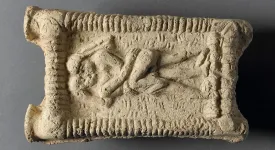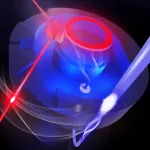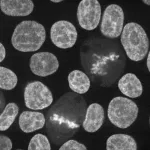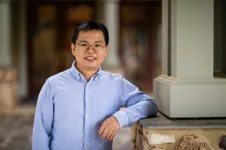(Press-News.org) Even if all direct human management of global forests ended immediately, their carbon sequestration potential would not be enough to curb ongoing climate change, according to a new study. The findings suggest that the planet’s current forests have only limited remaining carbon storage potential – even under the most unlikely of scenarios – to substantially mitigate atmospheric carbon dioxide (CO2) without major reductions in emissions. By capturing and storing carbon in biomass and soil organic matter, forests are integral to the global carbon cycle. As a result, the planet’s forests are often considered a central component in climate change policymaking, and many climate mitigation plans rely on forest-based carbon storage strategies to complement hard reductions in anthropogenic carbon emissions to achieve carbon neutrality. Despite this, the total amount of carbon that could realistically be stored in global forests remains poorly understood, nor has it been fully considered in climate mitigation strategies and policies. To address this, Caspar Roebroek and colleagues investigated the natural limits to additional carbon accumulation in the biomass of existing forests in the hypothetical absence of all direct human forest management activities, including wood harvesting, planting, and fire suppression, for example. Combining global maps of forest biomass in natural and managed forests with a novel machine learning, Roebroek et al. discovered that, under current climatic conditions and atmospheric CO2 concentrations, and the removal of all human forest management activities, existing global forests could increase their aboveground biomass by an additional ~44.1 petagrams of carbon. According to the authors, this represents an increase of roughly 15% more carbon than is currently stored in global forests, which would only offset about 4 years of worth of anthropogenic CO2 under current emission rates.
END
Unmanaged global forests have limited carbon sequestration potential
2023-05-18
ELSE PRESS RELEASES FROM THIS DATE:
Half of world's largest lakes losing water
2023-05-18
More than 50 percent of the largest lakes in the world are losing water, according to a groundbreaking new assessment published today in Science . The key culprits are not surprising: warming climate and unsustainable human consumption.
But lead author Fangfang Yao, a CIRES visiting fellow, now a climate fellow at University of Virginia, said the news is not entirely bleak. With this new method of tracking lake water storage trends and the reasons behind them, scientists can give water managers and communities insight into how to better protect critical sources of water and important regional ecosystems.
“This is the first comprehensive assessment of trends ...
Humanity’s earliest recorded kiss occurred in Mesopotamia 4,500 years ago
2023-05-18
Recent research has hypothesised that the earliest evidence of human lip kissing originated in a very specific geographical location in South Asia 3,500 years ago, from where it may have spread to other regions, simultaneously accelerating the spread of the herpes simplex virus 1.
But according to Dr Troels Pank Arbøll and Dr Sophie Lund Rasmussen, who in a new article in the journal Science draw on a range of written sources from the earliest Mesopotamian societies, kissing was already a well-established ...
Wiring up quantum circuits with light
2023-05-18
Quantum computers promise to solve challenging tasks in material science and cryptography that will remain out of reach even for the most powerful conventional supercomputers in the future. Yet, this will likely require millions of high-quality qubits due to the required error correction.
Progress in superconducting processors advances quickly with a current qubit count in the few hundreds. The advantages of this technology are the fast computing speed and its compatibility with microchip fabrication, but the need for ultra-cold temperatures ultimately confines the processor in size and prevents any physical ...
Call for Canada, US to braid Indigenous rights, endangered species laws
2023-05-18
Climbing caribou numbers in northeastern British Columbia prove that collaborations between Indigenous and colonial governments can reverse decades-long declines, but focus needs to shift to culturally meaningful recovery targets, a consortium of researchers and community members say in a new paper published this week in Science.
UBC Okanagan’s Dr. Clayton Lamb and West Moberly First Nation Chief Roland Willson co-lead the paper, Braiding Indigenous Rights and Endangered Species Law, alongside nine others for the influential journal.
“Abundance matters. There are many cases where endangered species laws have prevented extinction, but the warning signs ...
Rising rates of induced labor need to be reconsidered in the context of the UK maternity services staffing crisis, study suggests
2023-05-18
A new study suggests that increasing rates of induction of labour (IOL) of pregnant women and people in the UK, without considering the accompanying, real-world impact on staffing workloads and patient care, may have unintended consequences.
The study from City, University of London, the University of Edinburgh and others highlights the limited evidence around the delivery of home-based IOL services, which were seen as an important step to reducing maternity staff workload.
It finds large gaps in knowledge on how to deliver home-based ...
Disentanglement——breaking the activity-selectivity “tradeoff” effect in catalytic conversion
2023-05-18
Researchers have reported a strategy to disentangle the activity-selectivity tradeoff for direct conversion of syngas, a mixture of carbon monoxide and hydrogen, into desirable ethylene, propylene, and butylene. These hydrocarbons are known as light olefins and are the most-used building blocks for plastics.
“Activity and selectivity are two primary indexes of a successful catalyst for chemical reactions. A higher activity means higher efficiency in converting feedstock to products, thereby reducing energy consumption,” said JIAO Feng, an associate professor at the ...
Perfection: The Enemy of Evolution
2023-05-18
DURHAM, N.C. -- Scientists are often trained to seek out the absolute best solution to a given problem. On a chalk board, this might look something like drawing a graph to find a function’s minimum or maximum point. When designing a turbojet engine, it might mean tweaking the rotor blades’ angles a tiny degree to achieve a tenth of a percent increase in efficiency.
Adrian Bejan, the J.A. Jones Distinguished Professor of Mechanical Engineering at Duke University, was busy demonstrating the former for a class full of students ...
From Seattle to space: Science that began at the Allen Institute blasts off to International Space Station
2023-05-18
SEATTLE — May 18, 2023 — This Sunday (May 21) at 2:37 p.m. PDT1, astronauts from Axiom Space in partnership with Cedars-Sinai will blast off to the International Space Station carrying cells from the Allen Institute for Cell Science, a division of the Allen Institute. There, Axiom Space astronauts will perform experiments and send real-time data back to researchers at Cedars-Sinai as part of their study on the effects of microgravity on human cells.
The experiments are part of the Ax-2 mission, funded by NASA and ...
Award to lay new ground for information extraction without relying on humans
2023-05-18
Considering the millions of research papers and reports from open domains such as biomedicine, agriculture, and manufacturing, it is humanly impossible to keep up with all the findings.
Constantly emerging world events present a similar challenge because they are difficult to track and even harder to analyze without looking into thousands of articles.
To address the problem of relying on human effort in situations such as these, Lifu Huang, an assistant professor in the Department of Computer Science and core faculty at the Sanghani Center for Artificial Intelligence and Data Analytics, is researching how machine learning can extract information without ...
Children’s Hospital Colorado Electron Microscopy Lab receives prestigious accreditation as Diagnostic Center for Primary Ciliary Dyskinesia (PCD)
2023-05-18
Aurora, Colo. (May 18, 2023) – Children’s Hospital Colorado (Children’s Colorado) announces its official Electron Microscopy (EM) accreditation and becomes one of only two sites in the nation certified in the use of electron microscopy to diagnose primary ciliary dyskinesia (PCD). This EM accreditation is granted by the PCD Foundation (PCDF), a patient-focused organization dedicated to providing resources for those with PCD, a rare and debilitating lung disease.
"Children’s Colorado’s Electron Microscopy Lab has a long history of providing specialized electron microscopic imaging for many disease ...





